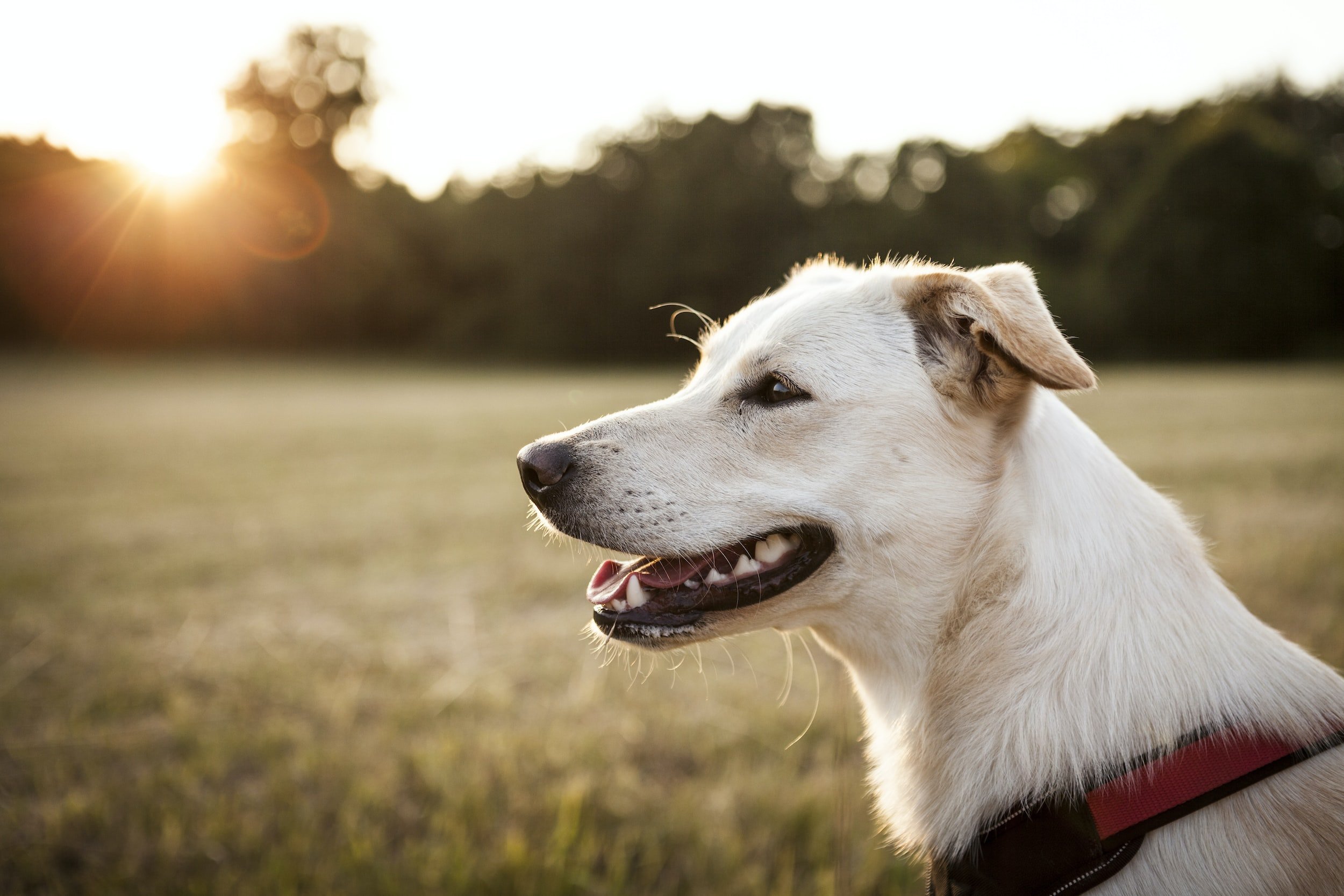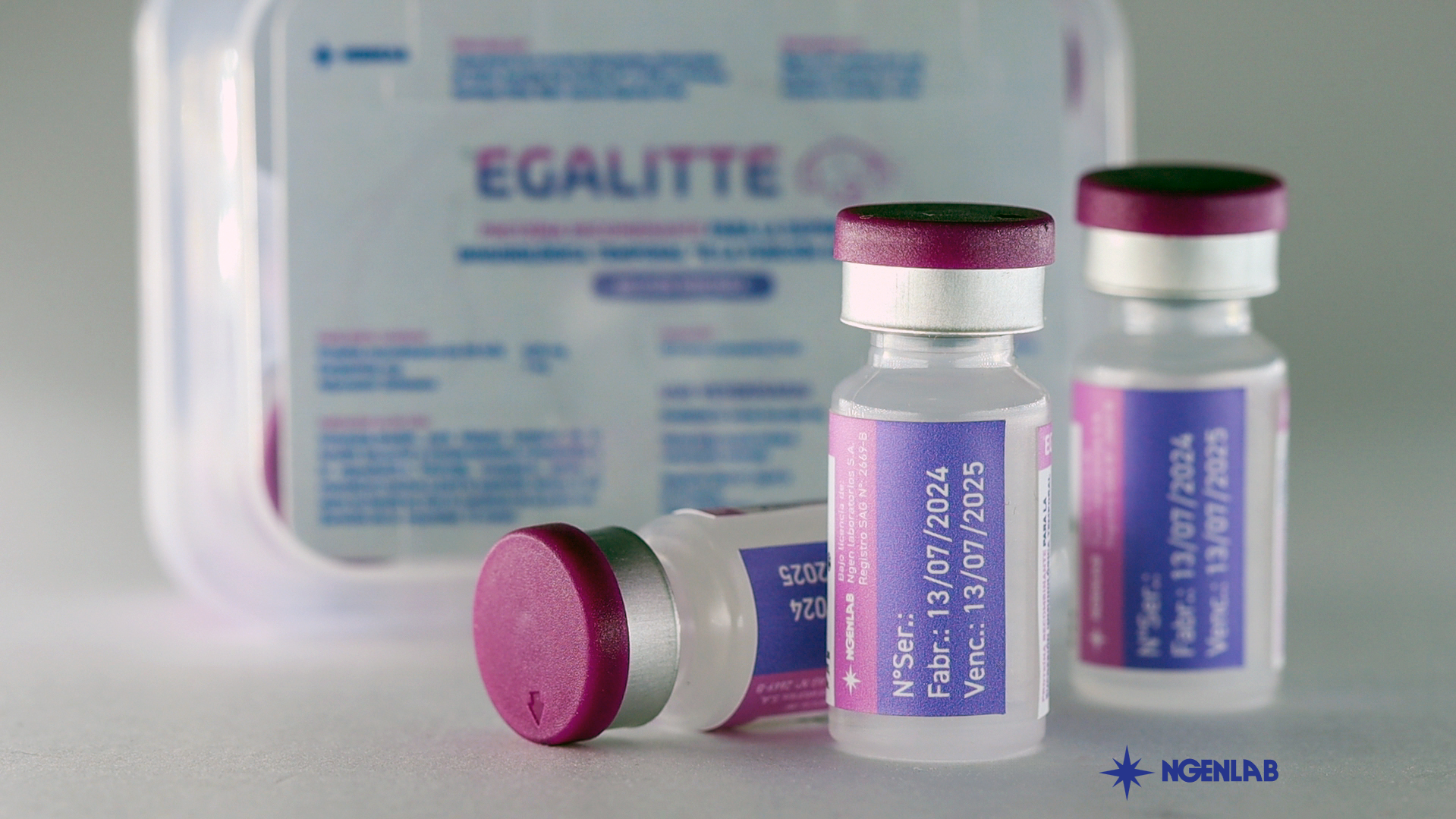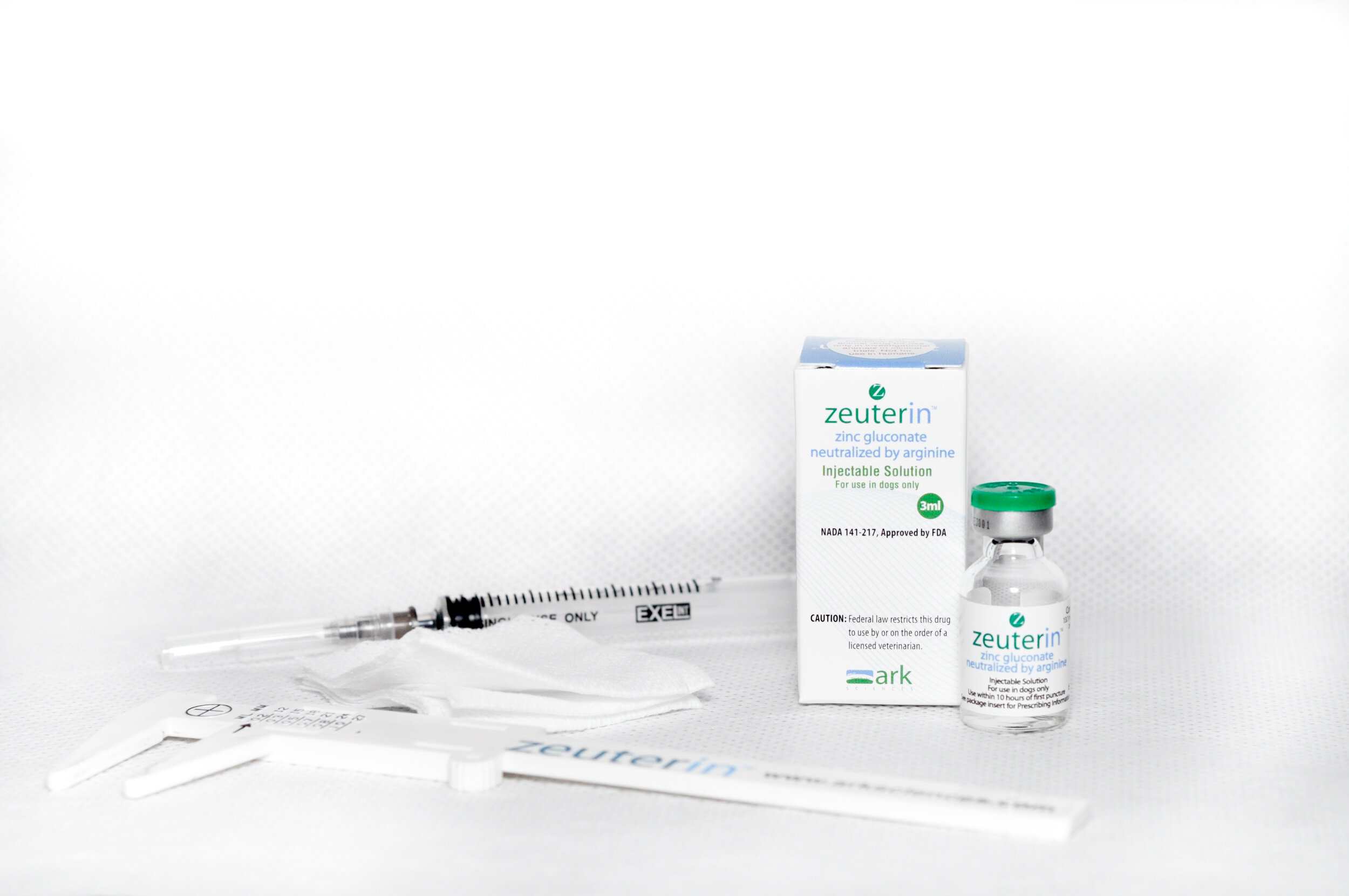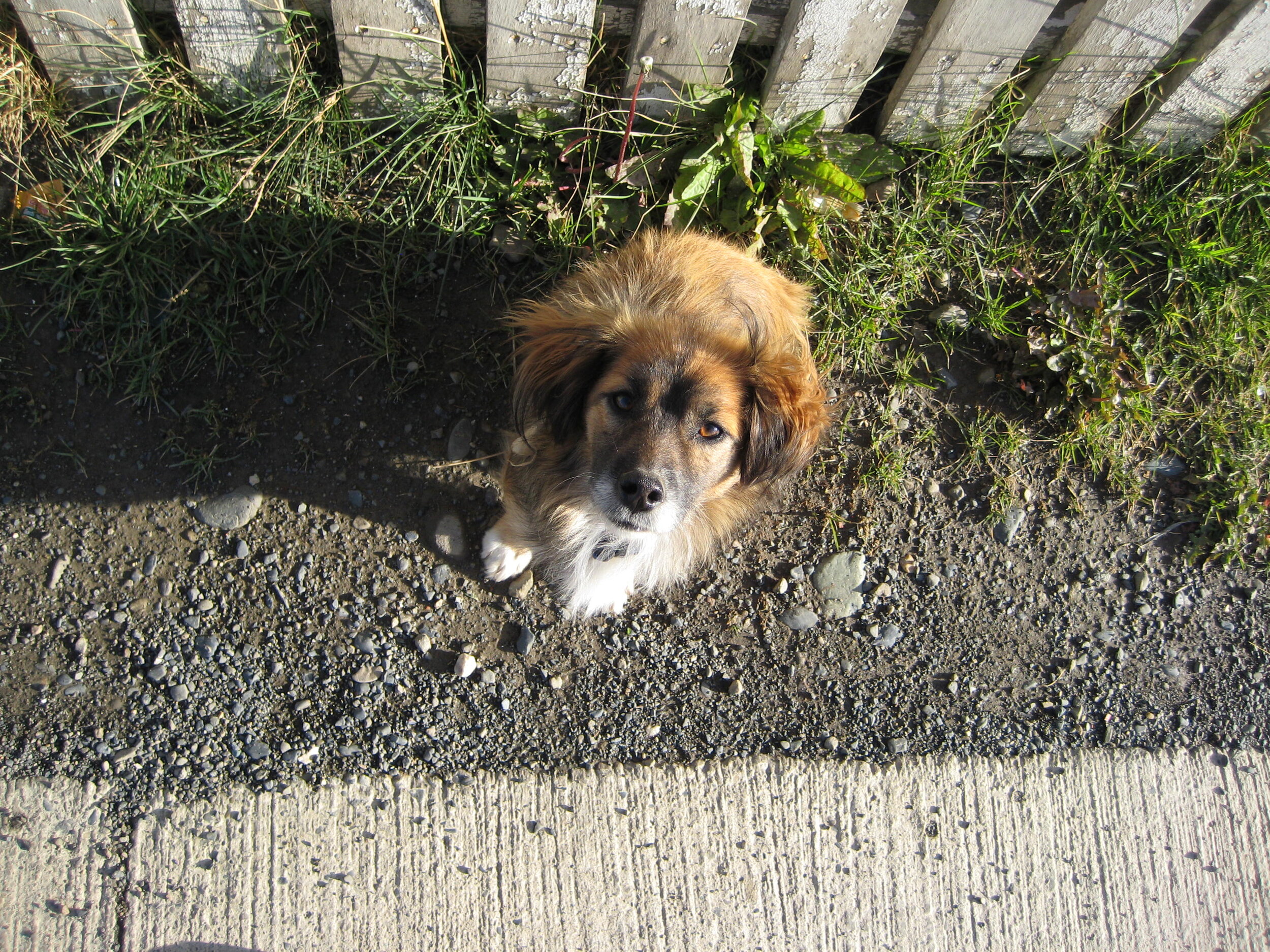
What’s available now for dogs and cats?
Presently there is no commercially available method for permanently non-surgically sterilizing cats or dogs, and globally there are only a few non-surgical contraceptive options available. ACC&D is working to help change this.
Availability of non-surgical fertility control options for cats and dogs varies by country. This is due to country-specific regulatory approval processes, as well as differences in production and distribution of products.
Species: Cat, Dog
Sex: Male and prepubertal female
Administration: Subcutaneous implant
Duration: Temporary; 6+ months (4.7 mg) and 12+ months (9.4 mg)
Agent: Deslorelin acetate
Brand: Suprelorin®
Considerations for use:
Suprelorin:
Initial hormone spike
Can be used continuously
Approved in male dogs and cats, and prepubertal female dogs (note: sex and species approval is country specific)
Occasionally prescribed off-label in adult female dogs and cats
Note that use in adult females can cause temporary induction of estrus, followed by infertility, and use in adult female dogs over 5 years of age can cause uterine disease
Species: Dog
Sex: Male and female
Administration: Subcutaneous injection
Duration: Temporary; ~5 months - 1 year
Agent: Recombinant protein
Brand: Egalitte®
Considerations for Use:
Egalitte:
Currently only available in Chile
Requires two initial injections (3-4 weeks apart) and yearly booster injections
Initial reports indicate likelihood for ability to use continuously
Must be administered during diestrus stage of reproductive cycle (for females), which requires additional testing by a veterinarian to determine
New product, information still being learned
Species: Cat, Dog
Sex: Female only
Administration: Oral (tablets/powder), subcutaneous or intramuscular injection
Duration: Temporary; duration varies by species and agent
Agent: MA, MPA, PROL
Brand: Megace® , Depo-Provera®, Delvosteron® , Feralstatᵀᴹ*
Considerations for Use:
General:
Should only be used with close veterinary oversight and should not be used for extended periods of time
Potential for serious adverse effects such as: uterine proliferation, diabetes mellitus, decreased immune function, and mammary tumors
Requires frequent dosing for oral treatment
Species: Cat, Dog
Sex: Male only
Administration: Intratesticular injection
Duration: Permanent (Zeuterin) /potentially permanent (CaCl₂)
Agent: Zinc gluconate neutralized with arginine*, CaCl₂†
Brand: Zeuterinᵀᴹ*, Neutersolᵀᴹ*, EsterilSolᵀᴹ*
Considerations for Use:
General:
Level of testosterone reduction is variable with CaCl₂
If not administered properly, potential for adverse site reactions, including abscesses and tissue necrosis
Use of CaCl₂ should be considered experimental
Zeuterin is not currently manufactured and is unavailable for purchase or use
Abbreviations: MA, megestrol acetate. MPA, medroxyprogesterone acetate. PROL, proligestone. CaCl₂, calcium chloride.
*No longer available.
†Experimental.
Reports from the Field
As non-surgical options begin to become commercially available, private veterinary practitioners and not-for-profit organizations alike have incorporated products into their practices. The entities profiled below enhanced their ability to reduce numbers of unwanted litters of dogs by using Zeuterin™ and Suprelorin® for male and female dogs, respectively. They together convey the truly diverse circumstances in which non-surgical fertility control—both what is available now and what will be available in the future—can be an asset to veterinarians, organizations, communities, and animals.
Dogs with no names
This initiative in Alberta, Canada focused on First Nations lands to give dogs a “pregnant pause” using Suprelorin implants. Food and water are scarce in the area, and winters bitterly cold. As a consequence, while birth rates among the “dogs with no names” on these lands are high; so, too, is mortality. Dr. Judith Samson-French’suse of Suprelorin not only made it possible to offer fertility control options in communities without veterinary surgical facilities; it also respects some residents’ resistance to surgical sterilization.
animal balance
Animal Balance is a U.S.-based organization that provides high-volume, high-quality spay/neuter and veterinary care to islands world-wide, Animal Balance seeks ways to increase capacity in under-resourced regions and better respond to the social and cultural sensitivities of host communities. Its Z*M*A*S*H campaign model, launched in April 2014, enables the organization to do both. Animal Balance incorporated Zeuterin into its program, leaving the choice of sterilization method up to local veterinarians and/or pet owners.
Portland animal welfare (paw) Team
PAW Team provides veterinary care to animals of Portland, Oregon’s (USA) homeless residents and plays an important role in connecting human clients to social services. With Zeuterin, PAW Team could neuter male dogs during monthly clinics, many of which are held outdoors, rather than arranging for sterilization at an outside surgical clinic. Zeuterin increased organizational efficiency, and both human clients and their dogs appreciated that it minimized time away from each other!
Wellness on wheelz
This mobile veterinary clinic in southern Texas’s Rio Grand Valley, serviced a region where residents may have to drive 100 miles to find a “brick and mortar” veterinary hospital. The county’s open-admission shelter has been known to take in 40,000 animals per year, with euthanasia numbers running nearly that high. Dr. Amber Valinski’s mobile unit offered wellness care to dogs and cats. She also offered neutering with Zeuterin to help reduce numbers of unwanted litters and improve the health of the communities’ animals.






